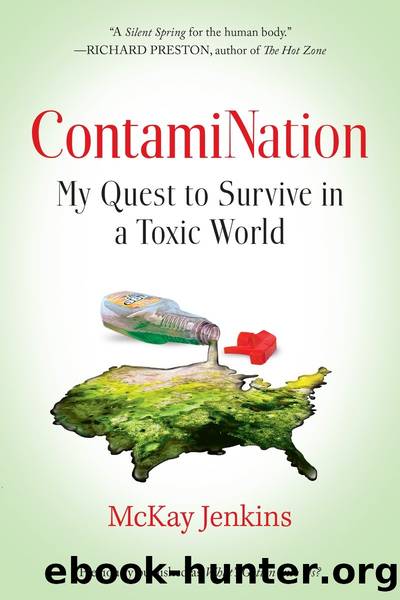ContamiNation by Mckay Jenkins

Author:Mckay Jenkins [Jenkins, Mckay]
Language: eng
Format: epub
Published: 2016-01-25T16:00:00+00:00
FIVE The Lawn
For the last dozen years or so, I have taught a course at the University of Delaware called The Literature of the Land. Itâs one of my favorite classes, not least because of the writing requirements. In addition to asking students to read a half dozen books about a particular subject (nature and religion, industrial food production, climate change), I have them spend at least an hour every week sitting in the woods and writing about what they see. Not what they think about. What they see. Learning field observation, I tell them, is as important for aspiring writers as it is for aspiring naturalists. Both demand attention to detail, both demand the ability to shut up and listen. Students are required to carry a field guide with them, and to take detailed notes on the things they see springing to life or dying back.
Over the years, a pattern has emerged. At first, all the students see are âtrees.â A week or two later, they are seeing âwhite oaksâ and âtulip poplarsâ and âsugar maples.â A few more weeks, and their eyes are more fully accustomed to the pace of life in the woods. They move through the space more slowly, and more quietly. They see foxes. And great blue herons. And barred owls.
My goals, not usually articulated until well into the semester, go beyond writing instruction, of course. What Iâm trying to do is encourage students to spend some time, every week, turning down the noise in their lives. I want them to tryâjust for a time, but every weekâto unplug from their cell phones and laptops, to disentangle themselves from the social and academic pressures of college, to take a walk in the woods. This also offers, not incidentally, an opportunity for self-reflection, for meditation, and for a renewed sense of engagement with the natural world.
Over the course of a dozen years teaching this class, something has become clear to me. Every semester, more and more students enter my classroom having spent virtually no time outdoors. They have not camped or climbed trees. They have not backpacked. They have not paddled rivers. They donât fish, or hunt, or climb mountains. Not with their families, not with their friends.
A couple of years ago, on the first day of class, I asked my students what words they think of when they hear the word âwilderness.â In past years, they offered both concrete, experiential words (âmy familyâs trip to Yosemiteâ) and what were surely abstractions (âjungle,â ârain forest,â âwild animalsâ). But this year was different, and for me, it marked what I still think of as a benchmark moment. What words did this group of students have me list on the board? What did wilderness mean to them?
âRape,â said one.
âFear,â said another.
âLoneliness,â said a third.
What was going on here? I knew most of these kids were suburbanites, but hadnât they ever been Girl Scouts? Or gone to a summer camp? Where were they getting their news about the natural
Download
This site does not store any files on its server. We only index and link to content provided by other sites. Please contact the content providers to delete copyright contents if any and email us, we'll remove relevant links or contents immediately.
What's Done in Darkness by Kayla Perrin(25499)
Shot Through the Heart: DI Grace Fisher 2 by Isabelle Grey(18218)
Shot Through the Heart by Mercy Celeste(18160)
The Fifty Shades Trilogy & Grey by E L James(17774)
The 3rd Cycle of the Betrayed Series Collection: Extremely Controversial Historical Thrillers (Betrayed Series Boxed set) by McCray Carolyn(13189)
The Subtle Art of Not Giving a F*ck by Mark Manson(12908)
Scorched Earth by Nick Kyme(11831)
Stepbrother Stories 2 - 21 Taboo Story Collection (Brother Sister Stepbrother Stepsister Taboo Pseudo Incest Family Virgin Creampie Pregnant Forced Pregnancy Breeding) by Roxi Harding(11038)
Drei Generationen auf dem Jakobsweg by Stein Pia(10216)
Suna by Ziefle Pia(10185)
Scythe by Neal Shusterman(9259)
International Relations from the Global South; Worlds of Difference; First Edition by Arlene B. Tickner & Karen Smith(8608)
Successful Proposal Strategies for Small Businesses: Using Knowledge Management ot Win Govenment, Private Sector, and International Contracts 3rd Edition by Robert Frey(8419)
This is Going to Hurt by Adam Kay(7693)
Dirty Filthy Fix: A Fixed Trilogy Novella by Laurelin Paige(6450)
He Loves Me...KNOT by RC Boldt(5804)
How to Make Love to a Negro Without Getting Tired by Dany LaFerrière(5378)
Interdimensional Brothel by F4U(5303)
Thankful For Her by Alexa Riley(5159)
